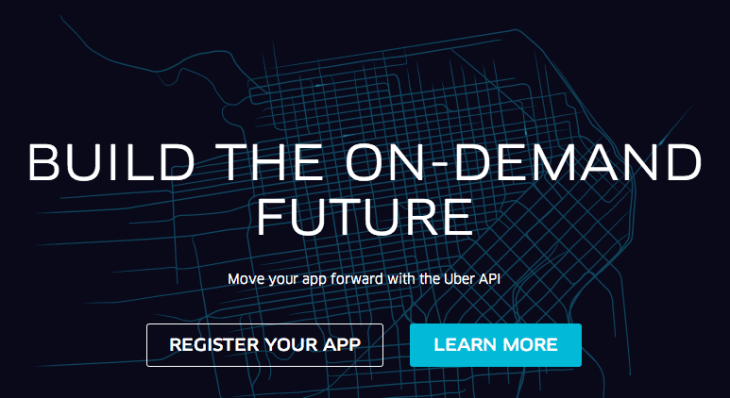Convincing users to join new collaborative consumption ventures can be a tall order, but Uber’s API launch today gives us a glimpse at how others building businesses along similar lines might be able to juice usage and find a lasting place in the virtual toolboxes of smartphone owners.
The fact is that most of the so-called sharing economy apps offer services that complement other apps and services, either in the same vein or in drastically different fields. Uber, for instance, has teamed up with OpenTable, Starbucks and United among its launch partners, as well as Hinge, which marries the hook-up app concept with the means of getting the two parties together.
It’s the proverbial match made in heaven, and there’s a lot more matchmaking to be done. Postmates, for instance, would benefit greatly from allowing businesses to build its service directly into their apps, offering delivery options where none existed before. Airbnb is gearing up to launch a developer partner platform, too, which would make it possible (for select companies at first) to build its rental platform directly into their software, which of course would be perfect for travel and tourism software.
The fact is that most of these collaborative consumption apps make much more sense as a service layer available to other app developers than as standalone businesses. In fact, you could even go so far as to say that on-demand services are the next notifications for mobile – they began as a standalone business provided by startups like Boxcar, but eventually companies cropped up that offered easy SDKs to build that functionality into any developer’s app, essentially turning the whole thing into a background service that users come to expect of any app they download.
Of course, there’s a lot more to a sharing economy app than there is to a notification layer, mobile payments gateway or in-app purchase system, which are just a few of the development components now being offered on a SaaS basis. But the natural fit between Uber and its new partners suggests there’s a lot of merit in the idea of shared real-world services providers for mobile apps – delivery, transport, accommodation, etc. are after all, just other things that it would benefit businesses to have, but that are prohibitively expensive to develop and maintain on their own.
